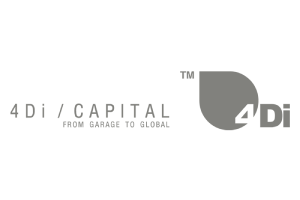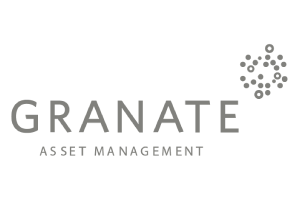Payroll Services
We help small businesses with payroll services - we take the stress out of pay-day.
OVERVIEW
Empower your employees by making payroll as easy as one, two, three.
When your company is growing, you don’t want to get to payday and not be sure what salary to pay your employees, or what should be paid to third parties. Get access to top-class professionals who can assist you in ensuring that your payroll process runs smoothly.
Allow us to take care of this function with some of the best outsourced payroll services around which will include: generating payslips, ensuring compliance with all forms of payroll taxes and handling submissions to SARS (South African Revenue Service) and the Department of Labour on your behalf.
That way you can focus on growing your business without the administrative burden and compliance pressures that go hand in hand with payroll administration.



WHAT’S INCLUDED
Get access to great bookkeeping and accounting professionals
What is payroll and what does it entail?
Payroll is the process of paying remuneration to the employees of a company.
A payroll system can be used to keep track of employees’ remuneration, benefits, deductions and leave balances along with any company contributions made in respect of that employee.
Payroll is made up of the following areas:

Gross salary
The gross salary of an employee is the amount of money that an employee is entitled to on a monthly basis before deductions and benefits are taken into account.
This amount is usually fixed, and any percentage increase given by a company is based on this amount.
Company Contributions
Company contributions are benefits that the employer gives to an employee over and above the gross salary earned. These benefits are not standard and every employer may have different benefits for their employers.
These company contributions can include, but are not limited to:
- Medical aid contributions
- Retirement fund / pension scheme contributions
- Paid vacation, sick and family responsibility leave (legally required)
- Company UIF, SDL and COIDA contributions (legally required)
Payroll deductions
Payroll deductions are deductions made from an employee’s gross salary. The purpose of the deduction is that the employer may directly pay these deductions over to third parties on behalf of the employee. These deductions include, but are not limited to:- Income tax (PAYE)
- Employee UIF contribution
- Garnish/maintenance orders
- Employee medical aid or retirement/pension fund contributions

What should an employer be registered for?
Pay As You Earn (PAYE)
Every employee that is employed in South Africa is liable to pay income tax on their earnings if their earnings are above a threshold that the government will declare each financial year.
PAYE is deducted from an employee’s salary every month to ensure that individuals do not have one big liability at financial year-end, but that the income tax is paid over to SARS in 12 monthly instalments. Every company that deducts PAYE from their employees’ salaries should be registered for PAYE. This registration can be done on e-filing. PAYE is declared to SARS every month via the submission of an EMP201 return.
Skills Development Levy (SDL)
SDL is a levy that is imposed on employers to encourage learning and development in South Africa. The amount payable is determined by an employer’s remuneration bill. Only employers who pay a total of more than R500,000 in 12 months are liable to register for, and pay, SDL. SDL is payable at 1% of the total amount paid in salaries to employees. SDL registrations can be done via e-filing. SDL is declared to SARS every month via the submission of an EMP201 return.
Unemployment Insurance Fund
The UIF is a fund that gives relief to employees who become unemployed after working for an employer who contributed to the UIF. Employees are only able to claim from the UIF when they become unemployed due to retrenchment, the end of a contract, maternity leave, adoption or parental leave, or illness. The UIF also provides relief to the dependents of a deceased contributor. Both the employee and the employer are liable to pay 1% of the employee’s remuneration. UIF is capped at 177.12 per month, and has a Employee and Employer Contribution. UIF is declared to SARS every month via the submission of an EMP201 return.
Compensation for Occupational Injuries and Diseases (COIDA)
The objective of COIDA is to provide compensation to employees who became disabled due to occupational injuries or diseases, or for death as a result of injuries or diseases contracted by the employee during his/her course of employment. Employers should register for COIDA within seven days after the first employee was employed. COIDA is submitted and paid by a yearly Return of Earnings on the basis of a percentage or fixed rate of the annual earnings of employees.
How to stay compliant with all payroll registrations, taxes and levies
To stay compliant is easy as long as an employer is registered for all the required taxes and types of levies. Employers should ensure the following:
- All employees are registered for Income Tax and all payroll deductions are deducted from an employee’s salary.
- EMP 201’s for PAYE, UIF and SDL are submitted and paid, monthly before the seventh of the month that follows the payroll month
- COIDA returns are submitted annually by the 31st of May and paid within 30 days of submission.
- Employees receive payslips on a monthly basis.
- Employee benefits fall within the scope of the Labour Law (Annual Leave, sick leave, family responsibility leave)
- EMP501 reconciliations are done bi-annually in October and May. EMP501 returns are where your payroll is reconciled to the EMP201’s submitted to SARS. The annual creation of IRP5’s and IT3’s are done by submitting your EMP501 reconciliation after the end of the financial year (May reconciliation).


Independent contractors
How to identify if you are an independent contractor
The rules of an independent contractor are simple:
- Your services are not performed mainly at the premises of a client
- Your client does not control your working hours and your schedule
- You may employ three or more full-time employees, who are not connected to you.
- When all three conditions are met
- When only conditions 1 and 2 are met
- If condition 3 is met, irrespective of whether condition 1 and 2 is met.
How to differentiate between an employee and an Independent Contractor
Independent contractors are also called freelancers, and they do not receive any benefits from a company. They file their taxes independently and are not included in the payroll of any company. The independent contractor is in charge of his / her own work methods, hours and schedule, and they are not limited to one client.Payroll Services we offer to South African businesses
- Setting up a Payroll systems for your company.
- Providing you with monthly payroll processing and reports
- Registering your company for PAYE, UIF, SDL and COIDA.
- Monthly EMP 201 submissions, Bi -Annual, Annual EMP501 Submissions and annual COIDA returns
- Maintaining employee leave records
Contact our team with any of your payroll queries, and a consultant will be in touch within 24 hours

TESTIMONIALS
What Our Clients Say.
Entrepreneurs change the world. They create growth, job opportunities and social impact. We serve entrepreneurs! Hundreds of founders and management teams tap into the expertise of their trusted finance and accounting partner to help scale their companies.
Business is about people. When you partner with Outsourced CFO, a finance professional or team with the right mix of knowledge, skills and experience is personally matched with your company – working with you to create a world class finance function for your growing company. Your success story is our success story.








PARTNERS
Our Clients.







RESOURCES
Read Our Latest Insights.

Introduction to Outsourced CFO’s Fintech and Business Solutions
“The world is changing very fast. Big will not beat small anymore. It will be the fast beating the slow.” – Rupert Murdoch, Media Mogul

Streamlining Your Business with OCFO’s Fintech and Automation Solutions
Work smarter, not harder – using the latest cloud technologies and automation software. The rise of the Fintech industry and cloud technology has changed the

Tailored Solutions for Diverse Needs: OCFO’s Flexible Financial Infrastructure Packages
As any startup founder knows, a rapidly growing business can suddenly find itself facing unexpected infrastructure challenges caused by the complexity of managing multiple financial
FAQ
Frequently Asked Questions
What is a payroll service?
A payroll service is where a third party processes payroll data for an entity’s employees. The earnings, deductions and contributions are processed through a payroll system, whereafter the system calculates deductions such as taxes and UIF. Most payroll systems have a leave function. Leave taken, leave accrued and leave balances can be managed through the system.
Payroll systems generate the following types of reports:
- Employee payslips
- Transaction history per employee
- EMP201 report that shows a summary of PAYE, UIF and SDL to be submitted
- Leave report
- Variance reports between months.
How much does a payroll service cost?
The cost for a payroll service depends on a variety of factors, including, but not limited to:
- The number of employees
- The complexity of payslips – do personnel only have salaries, or is there variable remuneration as well
- The frequency of payroll – weekly, bi-weekly or monthly
How does a payroll service work?
When an entity has employees, these employees need to be paid for their work. A payroll service enables entities to pay their employees the correct amounts, withhold the correct taxes and other levies, and pay amounts over to third parties where necessary. Payroll providers can assist with the necessary registrations at SARS or the Department of Labour. Entities with employees submit their payroll information to payroll providers. Payroll processing is done with this input. The output will be payslips and other payroll related reports.
How to choose a payroll service provider?
The payroll service you choose would be based on your number of employees as well as the complexity of the payroll information to be processed. Contact us for a quote for a payroll service to fit your payroll.
What is payroll administration?
Payroll administration refers to the process of managing a company’s employee payments. This involves ensuring that employees are paid accurately and on time, accounting for deductions such asPAYE taxes and benefits, and complying with relevant laws and regulations.
A comprehensive payroll system can also be used to keep track of benefits, deductions and leave balances along with any company contributions made in respect of that employee, making tax payments easier.
Why use a payroll service?
Using a payroll service can help to automate and streamline your payroll process, reducing the likelihood of errors and making sure that all payments are made on time. Businesses can also save money by avoiding potential penalties associated with admin errors or non-compliance, and by freeing up their in-house financial team to focus on core business tasks.
What are payroll solutions?
Payroll solutions refer to tools and services that help manage and simplify your payroll process. Companies that offer payroll solutions, such as OCFO, typically provide a blend of the most up to date payroll software and related payroll services to ensure your needs are met effectively.
Do I need both an accountant and a tax practitioner for my small business payroll needs?
Depending on your business’s complexity and payroll requirements, you might benefit from both. An accountant generally helps in managing and reviewing the financial aspects of your business, including offering advice on financial strategy. A tax practitioner, on the other hand, is specialized in understanding tax codes and ensuring that your business complies with relevant tax regulations.
While some small businesses might find that an accountant can manage both roles, others with more complex payroll needs will benefit from having both professionals on call to ensure full compliance and optimized financial management. For those businesses who cannot afford to pay a full-time tax practitioner, OCFO offers an outsourced service to bridge the gap.
What is payroll legislation and why is it important for businesses?
Payroll legislation refers to the laws and regulations governing how companies should compensate their employees. This includes, but is not limited to, regulations about minimum wage, overtime, tax deductions, benefits, and record-keeping. It’s crucial for businesses to understand and comply with payroll legislation to avoid legal repercussions and to ensure fair treatment of employees.
These laws and regulations often often get updated and might vary based on area or industry, making it essential for you to stay informed and up to date. Compliance not only builds trust with employees but also safeguards your business from potential legal challenges and financial penalties.
GET IN TOUCH
Cloud Accounting
Please fill in your details below and one of our consultants will be in touch within the next 24 hours.
Services Lead Enquiry Form
"*" indicates required fields